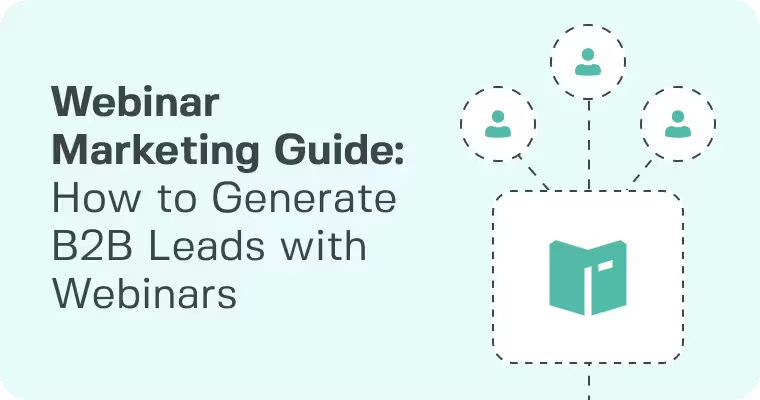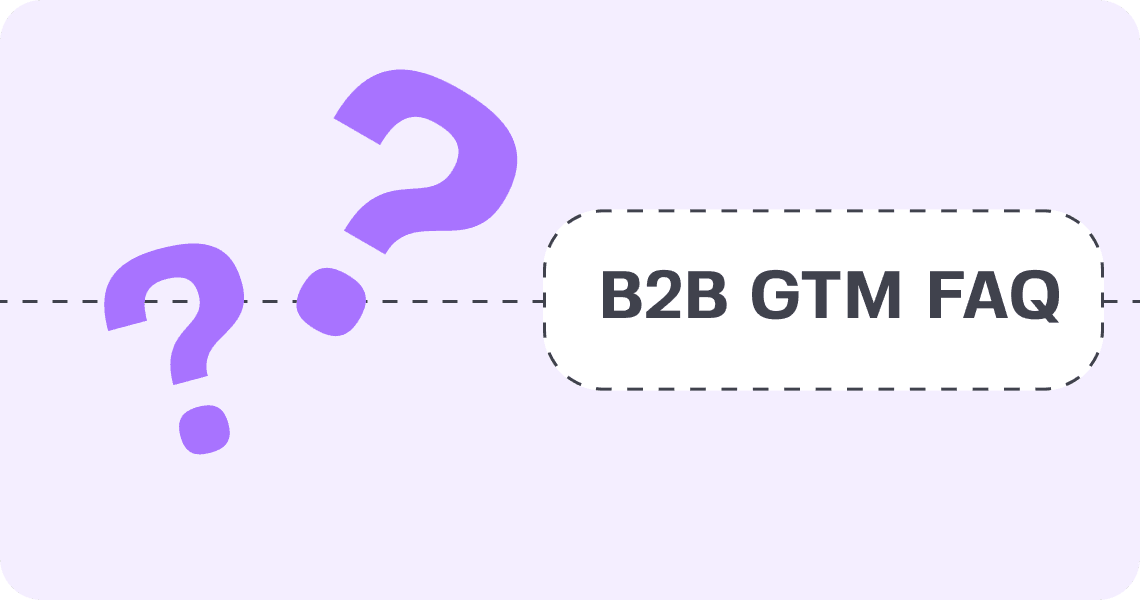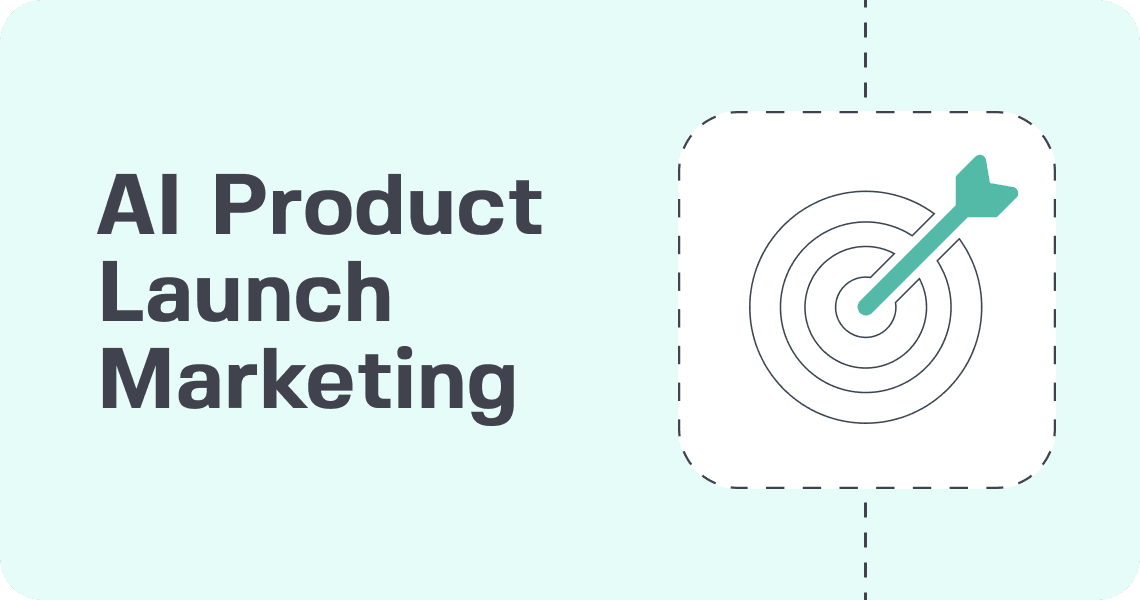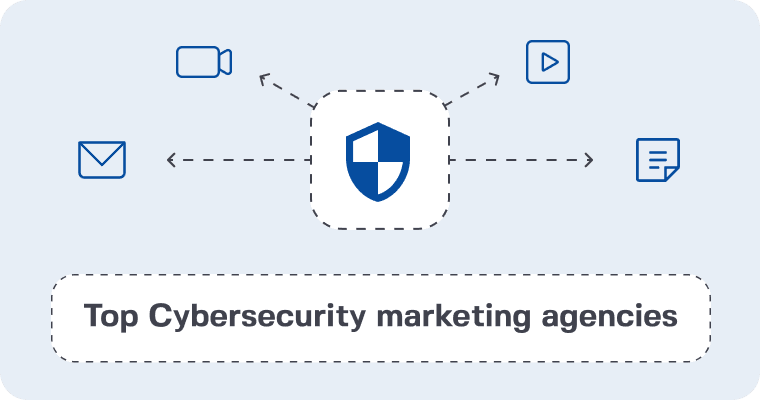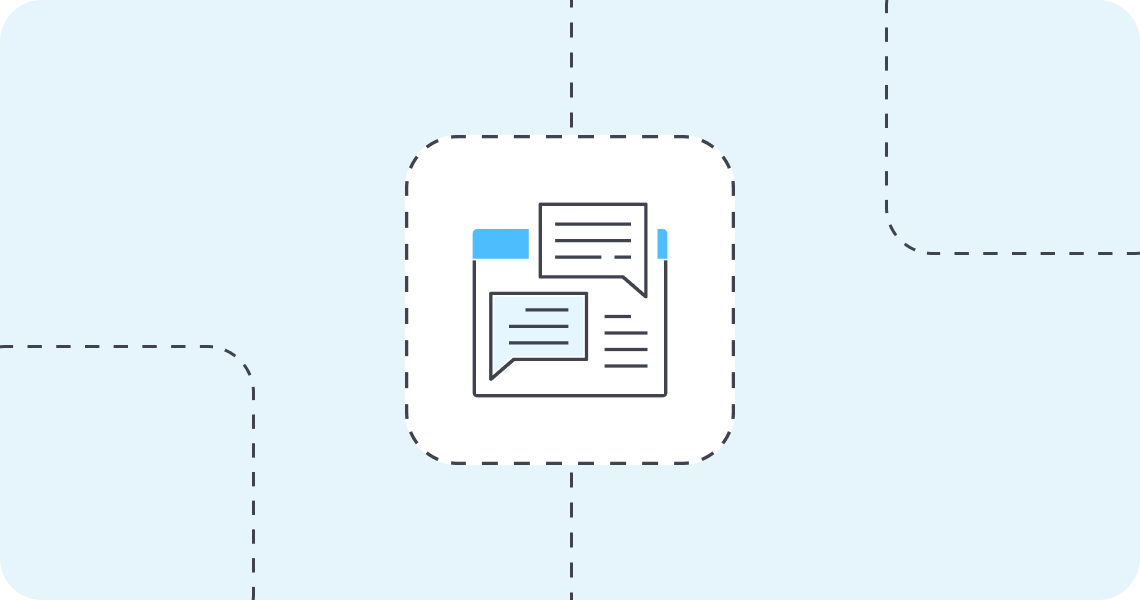Marketing is a key driver of growth for B2B companies. However, the larger your organization, the more challenging it can become to select the right strategies, generate, test, and improve marketing hypotheses, and address challenges along the way. In this comprehensive guide, we’ve combined the top enterprise marketing strategies and tools for 2024. Use it to optimize your B2B marketing efforts and discover the solutions that work best for your company.
What is enterprise marketing and how does it differ from standard marketing?
At its core, enterprise marketing is a holistic, strategic marketing approach tailored to the unique needs and challenges of large organizations. It is a strategic approach that targets broad organizational goals rather than individual consumer actions.
Here’s how enterprise marketing sets itself apart:
- Targets Broad Organizational Goals: Unlike standard marketing, which often focuses on immediate sales or consumer engagement, enterprise marketing aims at overarching objectives that align with the long-term vision and mission of the organization. This strategic outlook ensures that marketing efforts contribute to sustainable growth and market leadership.
- Involves Multi-channel, Integrated Strategies: Enterprise marketing harnesses the power of multiple channels, integrating them seamlessly to create a cohesive and consistent brand message across all touchpoints. This approach not only ensures a wider reach but also caters to the preferences of a diverse B2B audience.
- Requires Extensive Resources and Cross-functional Collaboration: The scale and scope of enterprise marketing demand substantial resources—both in terms of budget and manpower. Moreover, it thrives on cross-functional collaboration, bringing together teams from across the organization to strategize and implement marketing initiatives. This collective effort is crucial for addressing the multifaceted challenges of the B2B landscape.
- Focuses on Global Markets: Enterprise marketing often operates on a global scale, navigating the complexities of international markets. This global outlook necessitates an understanding of diverse cultural nuances, regulatory landscapes, and market dynamics, ensuring that marketing strategies are both globally coherent and locally relevant.
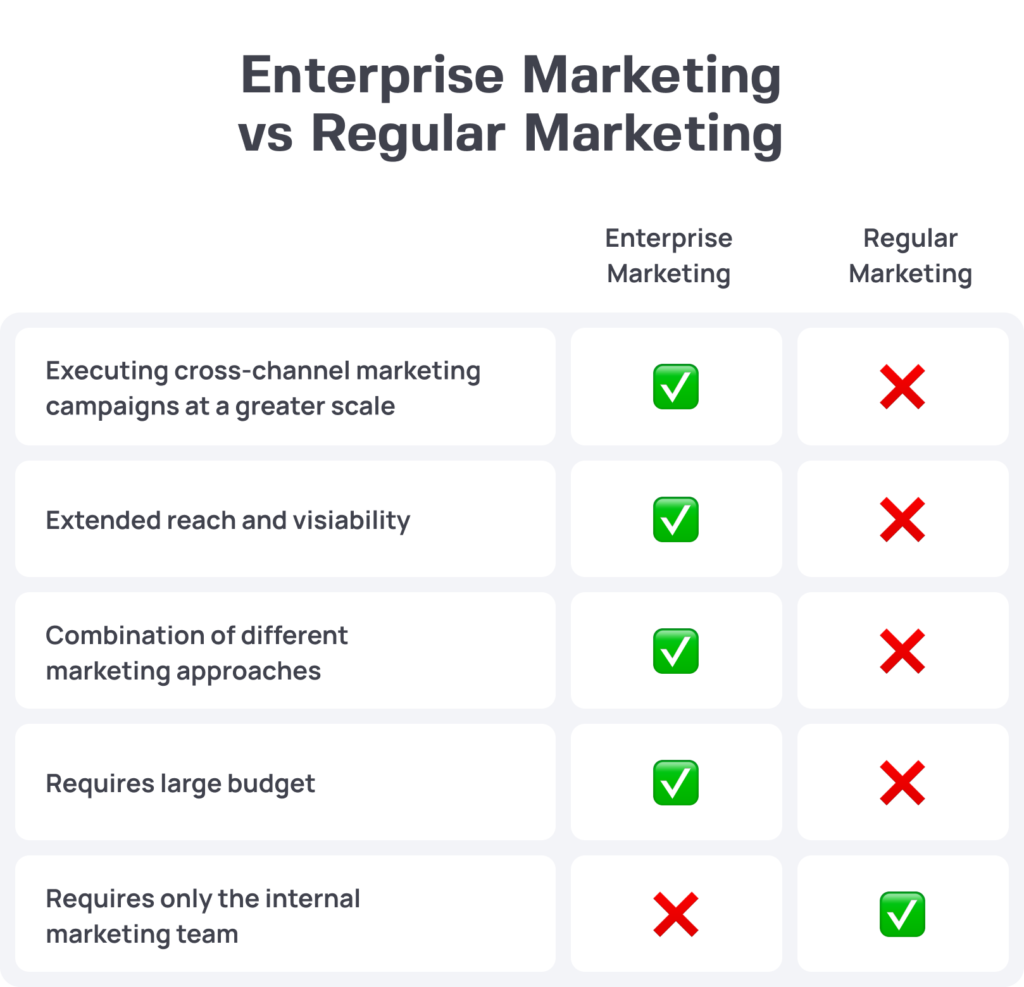
19 enterprise marketing strategies to streamline growth
Here are core strategies you should explore for successful enterprise marketing. Implementing these strategies can help enterprise marketing teams navigate the complexities of the B2B landscape, driving growth and building lasting relationships with customers.
To optimize B2B customer journey mapping, you should invest in exploring, understanding and refining the path your B2B customers take, from initial awareness through to purchase and beyond. This might be especially important as the expectations of Millennials and Gen Z decision-makers are crucially impacting their journey. Mapping this journey allows for targeted interventions that enhance the customer experience at each stage.
- Strengthen B2B Brand Awareness
Increase your visibility in the market through strategic branding efforts. Your key goals should be building trust and standing out from the AI-generated pull of content with human-centrics, native and easy to read content. Consistent messaging across all channels improves recognition and trust among potential clients. Explore non-traditional channels to catch the audience where they spend most time.
- Expand Omnichannel Lead Generation Efforts
With customers increasingly demanding personalized experiences, the traditional, siloed approaches to lead generation are becoming obsolete. This is where omnichannel lead generation steps in, offering a holistic solution that seamlessly integrates various channels to create a unified customer journey.
Utilize multiple channels and formats at once, while repurposing your content—to attract and engage prospects. A unified approach ensures a seamless experience for leads, regardless of how they interact with your brand.
- Leverage B2B Video Marketing
96% of users prefer watching a video to get the lowdown on products and services rather than flipping through a manual or reading blocks of text. Incorporate video into your marketing strategy to engage more deeply with audiences. Videos can explain complex solutions, showcase testimonials, and provide value through educational content.
Producing videos on scale can be a challenge for an enterprise, but with the right repurposing strategy, AI tools and templates, it has all the potential to become your main go-to content activity.
- Establish Thought Leadership
Position your brand as a leader in your industry through insightful content, research, and public speaking. A thought leadership agency builds credibility and attracts customers looking for the best in the business. To start your strategic efforts, explore some of the best accounts of B2B leaders who invest in thought leadership.
- Refine the B2B Sales Funnel
Enhancing your sales process involves meticulously mapping out each stage to effectively capture and nurture leads. A streamlined, well-defined funnel not only increases operational efficiency but also significantly boosts conversion rates by ensuring prospects are appropriately guided towards making a purchase.
You should regularly analyze and adjust the funnel stages according to customer feedback and behavior can lead to even greater efficiency and effectiveness.
- Advance ABM Strategy Implementation
Account-Based Marketing (ABM) narrows the focus of your marketing efforts to key accounts with the potential for high returns. By crafting personalized marketing strategies that are tailored to the specific needs and characteristics of these accounts, ABM ensures that your messaging is highly relevant and impactful, thereby improving engagement rates and ROI from these high-value targets.
- Utilize Audience Segmentation
Segmenting your audience allows for more personalized and effective marketing efforts. Divide your audience into distinct segments based on demographics, behaviors, or needs. Tailored messaging to each segment increases relevance and engagement.
- Boost B2B Demand Generation
Implement strategies aimed at creating awareness and demand for your products or services. High-quality content, SEO, and strategic partnerships can drive interest and leads.
- Enhance Enterprise Content Management
Use content management systems to organize, store, and publish content efficiently. Effective content management supports consistent messaging and easier content updates.
- Personalize Inbound Marketing Strategies
Create content that addresses the specific needs and pain points of your target audience. Personalized content marketing attracts more qualified leads and enhances engagement.
- Implement Omnichannel Strategies
Ensure a cohesive and integrated customer experience across all channels, from social media to customer service. Omnichannel strategies provide a unified brand voice and smoother customer journey.
- Utilize Data and Analytics
Make informed decisions based on data analysis. Understanding customer behavior, campaign performance, and market trends allows for more effective strategy adjustments.
- Focus on Customer-Centric Approaches
Put the customer at the center of your marketing efforts. Listen to feedback, address pain points, and strive to exceed expectations to build loyalty and advocacy.
- Develop a Robust, Purpose-Driven Brand
Align your brand with values that resonate with your target audience. A purpose-driven brand fosters deeper connections and can differentiate you from competitors.
- Streamline Customer Journeys
Identify and remove friction points in the customer journey to improve satisfaction and conversion rates. A smooth journey from awareness to purchase encourages repeat business.
- Invest Wisely in Marketing Technologies
Select the right mix of marketing technologies that enhance your capabilities without overcomplicating your stack. The right tools improve efficiency, measurement, and customer insights.
- Enhance Sales and Marketing Alignment
Ensure that your sales and marketing teams work closely together, sharing insights and goals. Alignment between the teams leads to more consistent messaging and better overall performance.
- Comprehensive Marketing and Sales Analytics
Use analytics to gain a holistic view of your marketing and sales performance. Comprehensive analysis helps identify successes, opportunities for improvement, and insights into customer behavior.
Challenges in Enterprise Marketing: Navigating the Complex Landscape
The realm of enterprise marketing is rife with hurdles that necessitate both innovative approaches and strategic acumen. By drawing on insights from leading sources, we delve into the critical issues confronting enterprise marketers in the current climate:
Data Privacy and Regulatory Compliance: In an era defined by stringent regulations like the GDPR and CCPA, prioritizing data privacy and adherence to compliance standards has emerged as paramount:
- Approximately 60% of data-leading enterprises viewed GDPR as an opportunity to foster customer relationships, contrasted with only 20% of data challengers.
- Conversely, 60% of data challengers perceived privacy regulation as a limiting factor, versus 18% of data leaders
Customer Experience (CX) Expectations: The expectation for personalized, seamless customer experiences is at an all-time high. A survey by McKinsey & Company revealed that 80% of B2B buyers now expect the same buying experience as B2C customers.
Integrating Marketing Channels: Achieving a cohesive marketing strategy across multiple channels is increasingly complex. Research from Statista indicates that 70% of enterprises struggle with omnichannel marketing integration.
Aligning Sales and Marketing: The disconnect between sales and marketing departments remains a significant obstacle, impairing lead conversion and customer retention. This misalignment adversely affects lead generation (44%) and sales cycle times (37%), with 52.2% of sales professionals identifying lost sales and revenue as the most significant consequence.
Demonstrating ROI: The ability to measure and demonstrate the ROI of marketing efforts is crucial yet challenging, with only 54% of global marketers feeling confident in their ROI measurement capabilities.
Global Market Penetration: Venturing into global markets introduces a spectrum of logistical, cultural, and regulatory challenges that demand careful navigation.
Innovation and Differentiation: In a saturated marketplace, continuous innovation and the ability to differentiate oneself are essential for standing out.
These challenges highlight the imperative for strategic agility, comprehensive data analysis, and an in-depth understanding of both global trends and local peculiarities. By confronting these issues with well-informed strategies and creative solutions, enterprise marketers can thrive in today’s competitive environment.
TOP Enterprise Marketing Tools for Optimization Excellence
Leveraging the right tools is not just a matter of convenience—it’s a strategic imperative. These tools are the linchpins of marketing optimization, enabling enterprises to streamline their operations, enhance engagement, and ultimately drive significant growth. Below, we explore the top categories of enterprise marketing tools that stand out for their ability to bring about optimization excellence:
Content Management and Optimization: At the heart of any digital marketing strategy lies content. Content management and optimization tools ensure that your content is not only compelling and relevant but also optimized for search engines and tailored to the preferences of your target audience. These platforms facilitate the creation, management, and refinement of content across multiple channels, ensuring consistency and impact.
Tools to check out:
- Dashword – Offers a user-friendly interface with real-time updates on writing progress, while also streamlining keyword reports and content brief generation.
- SE Ranking – Enhances content quality and SEO with actionable suggestions like quality scores, keyword recommendations, readability checks, and collaborative editing features.
- Letterdrop – Provides ideas, SEO, and content distribution. Offers project management, content calendar planning, approvals, and search console analytics.
CRM and Marketing Automation: Customer Relationship Management (CRM) and marketing automation platforms are indispensable for managing customer data, interactions, and automating marketing tasks. These tools enhance efficiency and personalize customer experiences at scale, fostering deeper relationships and driving conversions.
Tools to check out:
- HubSpot offers a suite of CRM and marketing tools for businesses of all sizes, enabling seamless management of customer data, automation of marketing workflows, and personalized engagement.
- Salesforce provides robust CRM solutions, empowering organizations to track customer interactions and streamline sales processes.
- Marketo offers comprehensive marketing automation software, facilitating lead management, email marketing, and campaign analytics to optimize marketing efforts and drive growth.
Social Media Management and Analytics: With the ubiquity of social media, managing multiple platforms and analyzing performance data can be daunting. Social media management and analytics tools provide a centralized dashboard for scheduling posts, engaging with followers, and tracking the effectiveness of social media campaigns.
Tools to check out:
- Hootsuite simplifies social media management by allowing scheduling, monitoring, and analyzing social media activity across multiple platforms from a single dashboard.
- Sprout Social offers features for scheduling posts, engaging with audiences, and analyzing social media performance to optimize strategies.
- Brandwatch provides advanced social listening and analytics tools, enabling businesses to track brand mentions, analyze sentiment, and gain insights for informed decision-making.
Email Marketing and Automation Platforms: Email remains a powerful channel for direct communication with prospects and customers. Email marketing and automation platforms help design, send, and monitor email campaigns with precision, allowing for segmented, personalized messaging that increases engagement and conversion rates.
Tools to check out:
- Reply.io streamlines email outreach with automation features and personalized messaging, optimizing prospect engagement.
- Mailchimp offers user-friendly email marketing tools, including customizable templates and advanced segmentation options for targeted campaigns.
- Klaviyo specializes in e-commerce email marketing, providing robust automation capabilities, data-driven insights, and integrations with leading e-commerce platforms to drive sales and customer loyalty.
Data Analytics and Customer Insight Tools: In the data-driven age of marketing, analytics and customer insight tools are critical for understanding market trends, customer behavior, and campaign performance. These tools offer actionable insights, enabling marketers to make informed decisions and tailor strategies for maximum impact.
Tools to check out:
- Google Analytics – A staple in the digital marketing world, Google Analytics provides comprehensive insights into website traffic, user behavior, and conversion metrics, helping marketers optimize their online presence.
- Tableau – Offers powerful data visualization tools that make complex data understandable at a glance. Marketers can use Tableau to create interactive dashboards that highlight customer trends and insights.
- Mixpanel – Specializes in user behavior analytics, allowing marketers to track how users interact with their products across platforms. This tool is invaluable for understanding engagement patterns and improving user experience.
Programmatic Advertising and Media Buying: Programmatic advertising platforms automate the buying of ad space, using algorithms to target ads more effectively. This leads to improved efficiency and ROI of advertising campaigns, ensuring that your message reaches the right audience at the right time.
Tools to check out:
- SmartyAds – Offers a programmatic advertising ecosystem with features like DSP, DMP, SSP, and ad exchange, enabling cross-device campaigns and rich targeting capabilities.
- TubeMogul – Facilitates premium ad inventory access through real-time bidding, covering various ad formats including desktop, mobile, connected TV, and digital out-of-home, with added fraud compensation measures.
- Simpli.fi – Has multiple RTB ad exchange access, native DSP, DMP, and SSP, enhancing audience targeting through criteria like intent-based search data and look-alike modeling.
- MediaMath – Provides end-to-end campaign management with an omnichannel focus, integrating first and third-party data sets, and predictive modeling.
- PubMatic – Offers high-quality ad inventory access for brands and publishers, with real-time analytics and a fraud-free program for campaign optimization and security.
SEO and SEM Tools: Search Engine Optimization (SEO) and Search Engine Marketing (SEM) tools are essential for increasing visibility online and attracting organic and paid traffic. These tools assist in keyword research, competition analysis, and tracking search rankings, contributing to a stronger online presence.
Tools to check out:
- SEMRush – Provides comprehensive SEO and SEM insights, including keyword research and competitive analysis.
- Ahrefs – A toolset for SEO & marketing running on a big data index of global search data.
Web Experience Management: Creating a seamless, engaging online experience is crucial. Web experience management tools assist in designing and managing dynamic, responsive websites that are optimized for user engagement and conversions.
Tools to check out:
- NitroPack – Optimizes website performance, improving speed and user experience through advanced caching and optimization techniques.
- Contentsquare – Offers insights into user behavior on websites, enabling businesses to optimize content and design for better engagement and conversion rates.
Lead Management and Scoring Software: Identifying and nurturing leads is fundamental in B2B marketing. Lead management and scoring software allows marketers to track leads through the sales funnel, scoring them based on their engagement and likelihood to convert, enabling targeted follow-up strategies.
Tools to check out:
- EngageBay – Helps track engagement and qualify your leads and predict their next steps. It automates the process of following up, and syncs your activities.
- HubSpot Sales Hub – Uses lead scoring to prioritize and evaluate leads based on their interactions and attributes like demographics, online behavior, and engagement levels to optimize conversion efforts.
- Zoho CRM – This CRM with lead scoring features employs lead activity, demographics, and engagement history to rank and prioritize leads, focusing on high-potential prospects for increased conversion rates.
- Monday.com – This CRM’s sales hub lets you customize the parameters you want to score and rank your leads by, which will then be done automatically for incoming leads so that you can know where to target your lead nurturing efforts.
Project Management and Collaboration Software: With marketing projects often involving cross-functional teams, project management and collaboration software is vital for coordinating efforts, tracking progress, and ensuring that campaigns are executed smoothly and efficiently.
Tools to check out:
- Asana – A project management tool that helps teams organize, track, and manage their work.
- Slack – Enhances team collaboration through messaging, tool integration, and file sharing.
By incorporating these tools into your marketing strategy, you’ll be well-equipped to tackle the dynamic challenges of the digital marketing landscape, optimize your campaigns for maximum effectiveness, and achieve significant business growth.
Next Steps in Your Enterprise Marketing Journey
Embarking on or advancing your enterprise marketing journey involves strategic actions and partnerships to maximize success. Here are pivotal steps to consider:
- Adopt a Strategy Aligned with Your Objectives: Begin by identifying and implementing a marketing strategy that closely aligns with your business goals. Whether it’s increasing brand awareness, driving sales, or enhancing customer loyalty, the right strategy acts as a roadmap guiding your efforts towards achieving these objectives efficiently.
- Leverage Cutting-Edge Tools: Utilize the array of enterprise marketing tools highlighted in this guide. These tools are designed to streamline operations, enhance engagement, and drive growth by offering solutions for content management, CRM, social media analytics, email marketing, and more. Incorporating these tools into your marketing practices can significantly elevate your campaign’s effectiveness and ROI.
- Partner with Experts: Consider forging a partnership with a reputable marketing agency that can bring expertise, innovative solutions, and strategic guidance to the table. 42dm is an example of such a partner, known for its ability to tailor marketing strategies that resonate with your brand’s vision and goals. Collaborating with a reliable partner ensures you have the support necessary to navigate the complexities of enterprise marketing with confidence.


